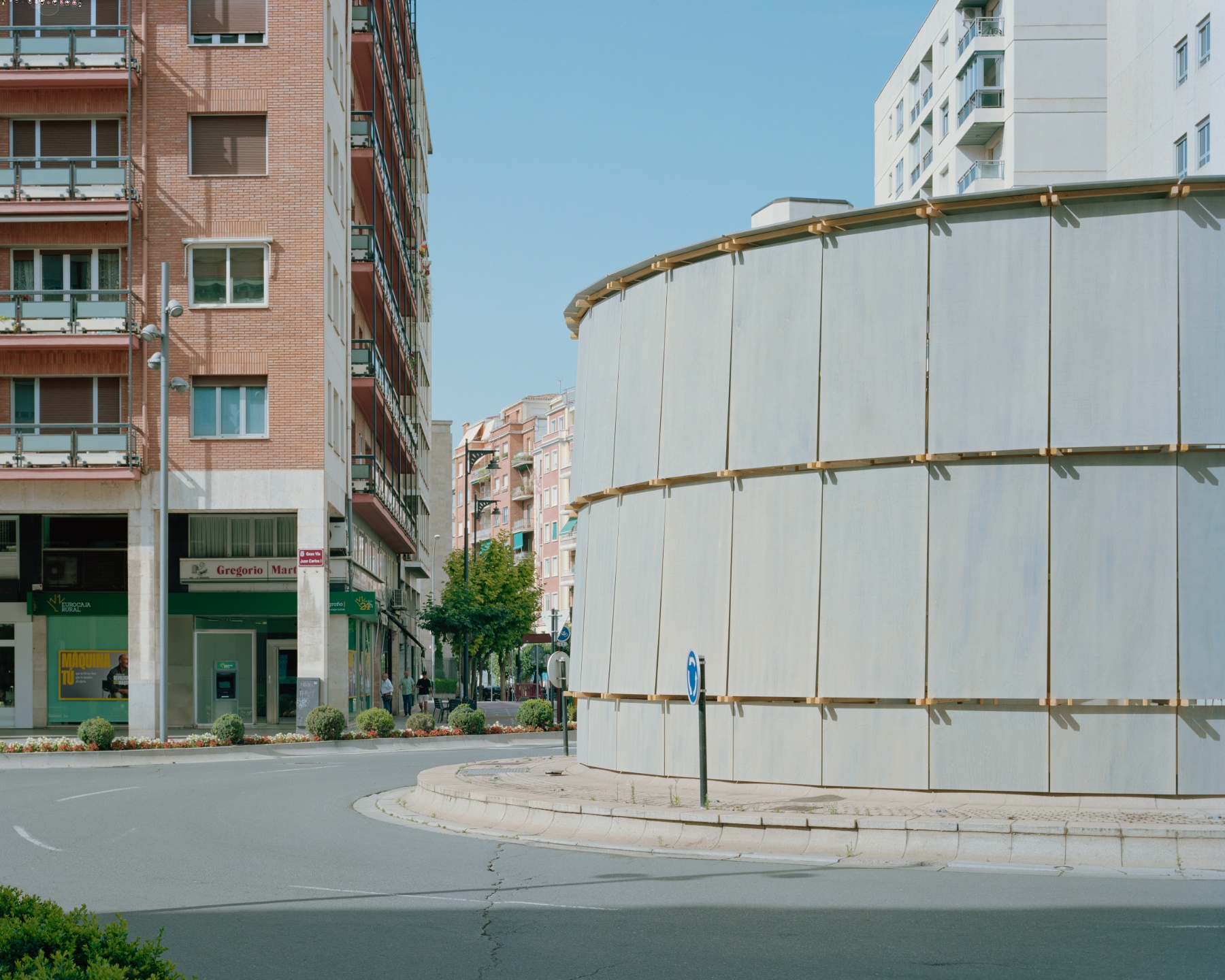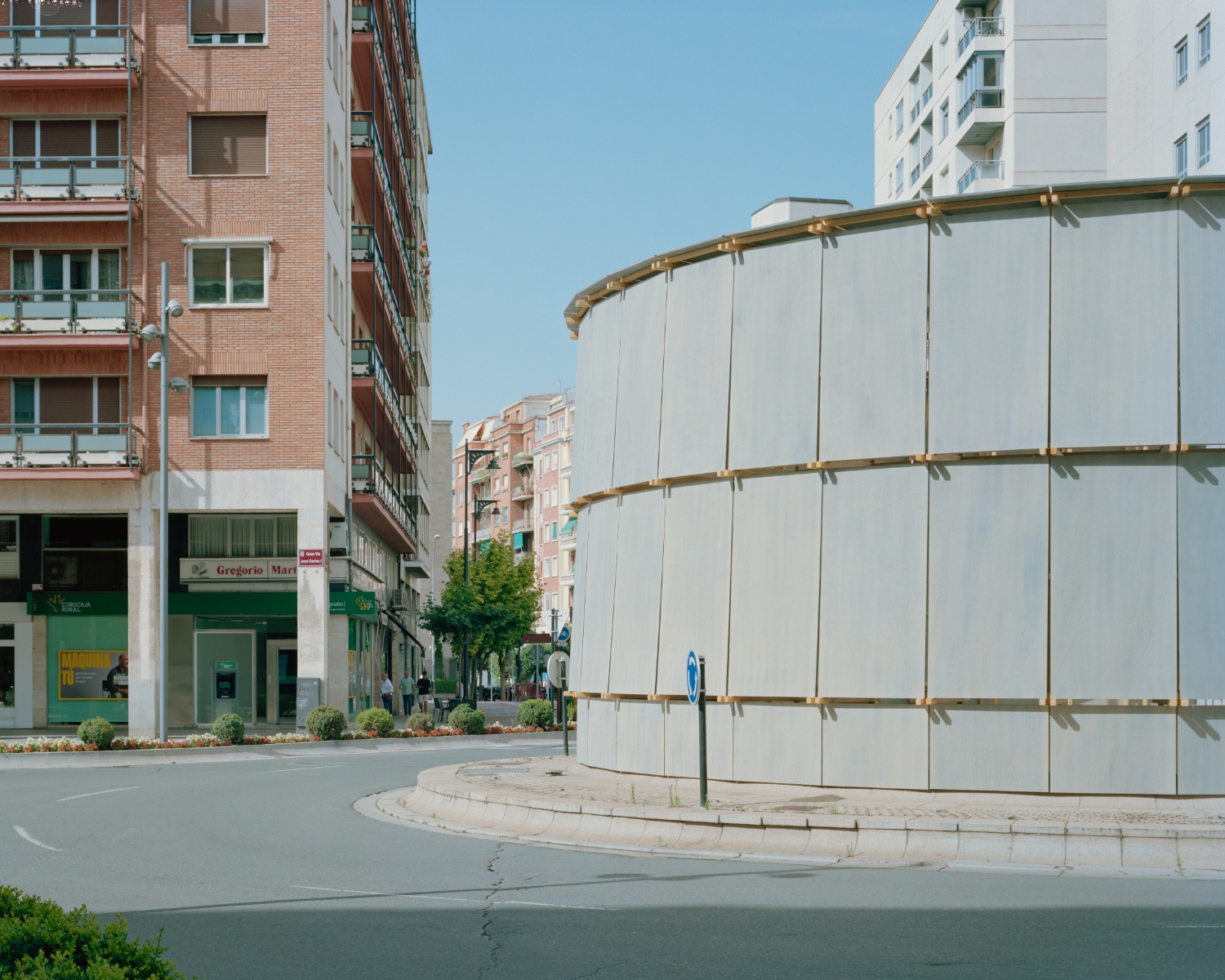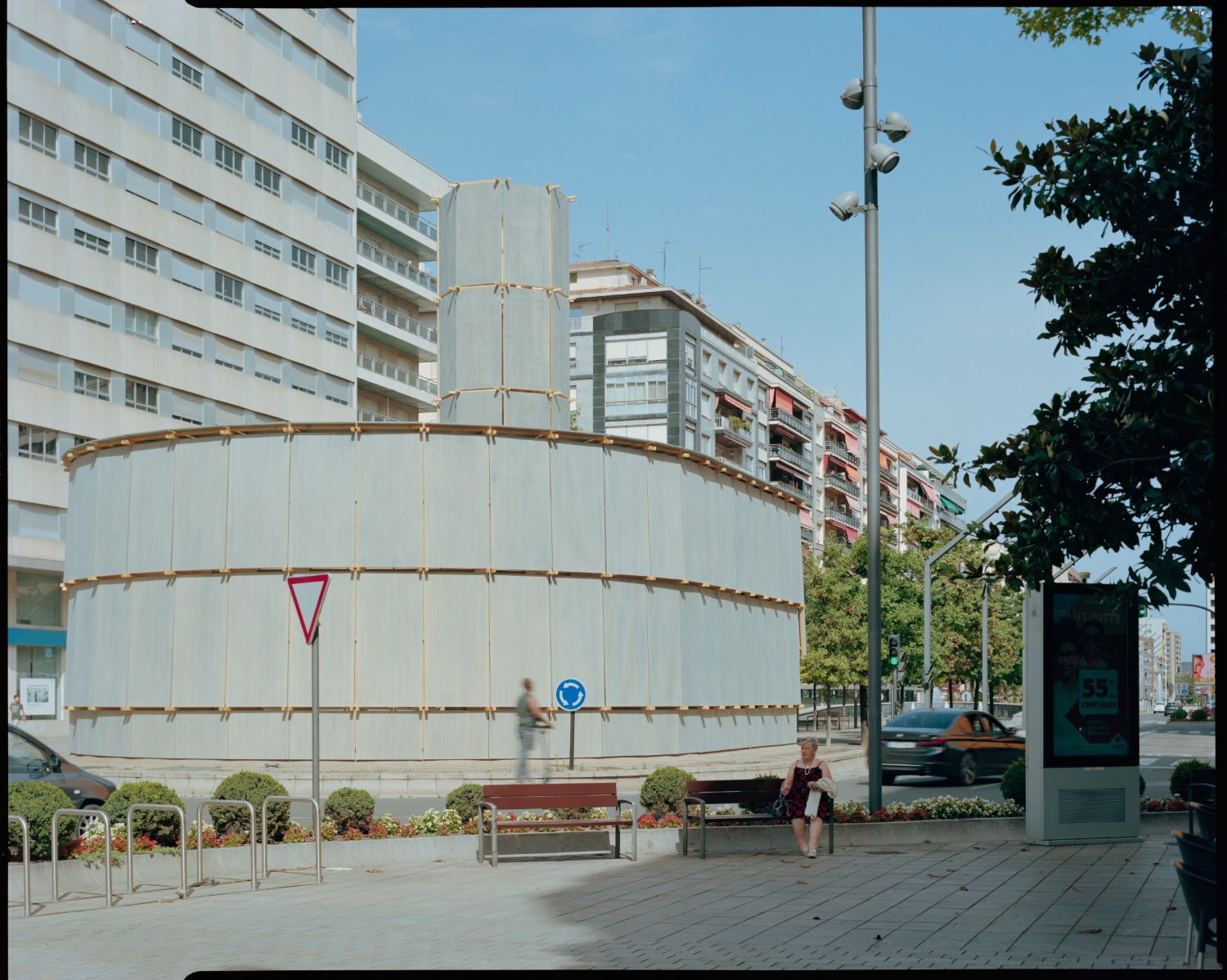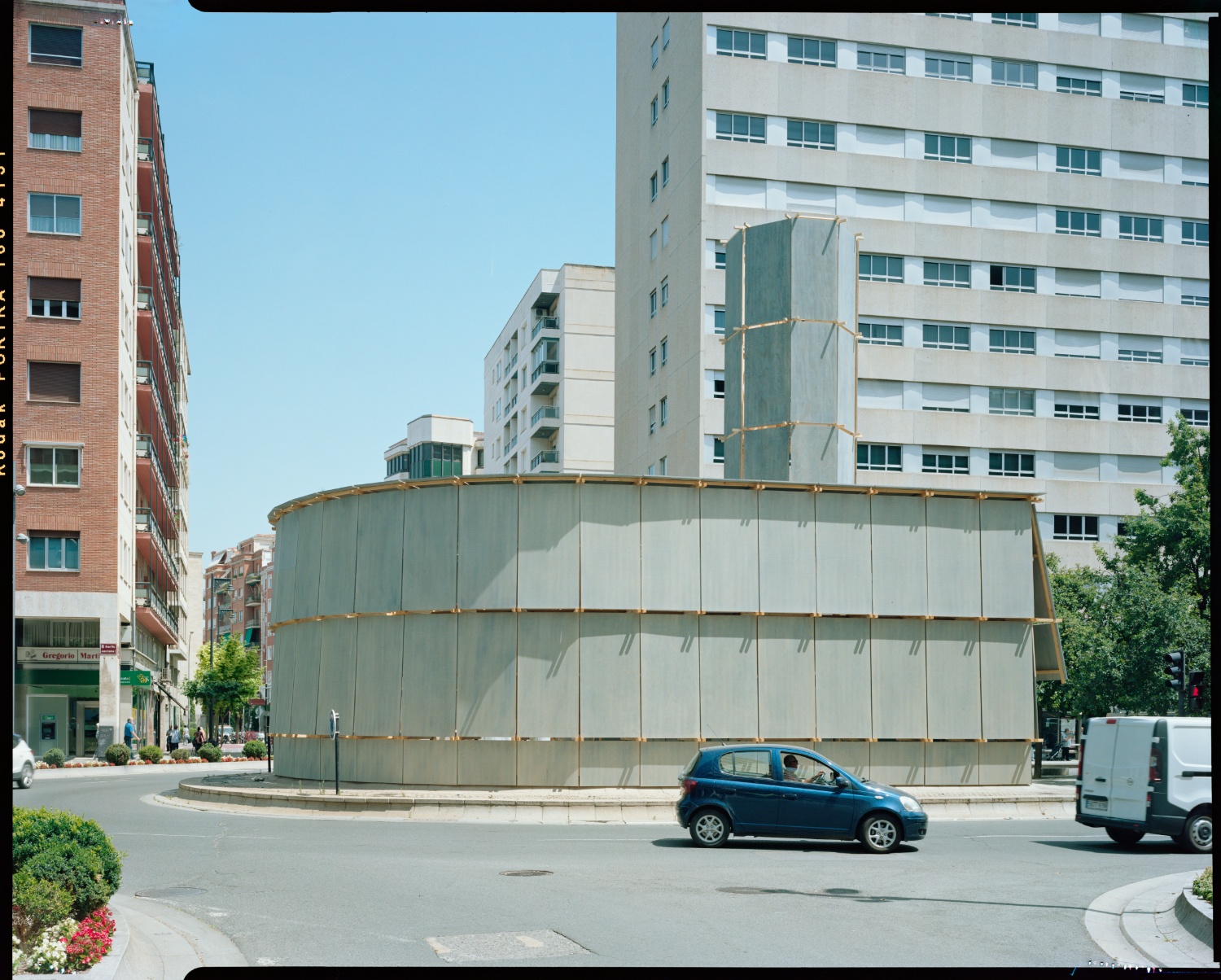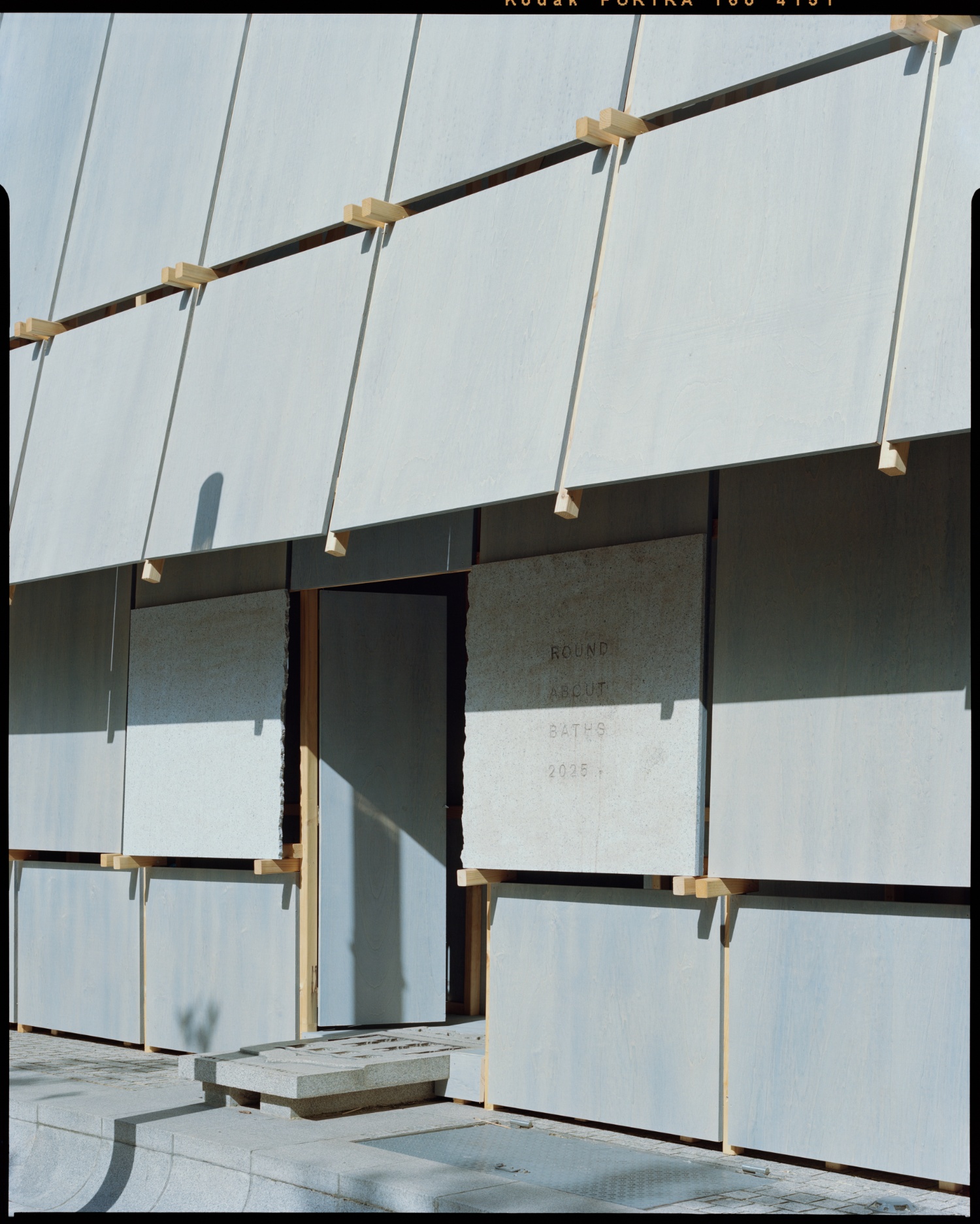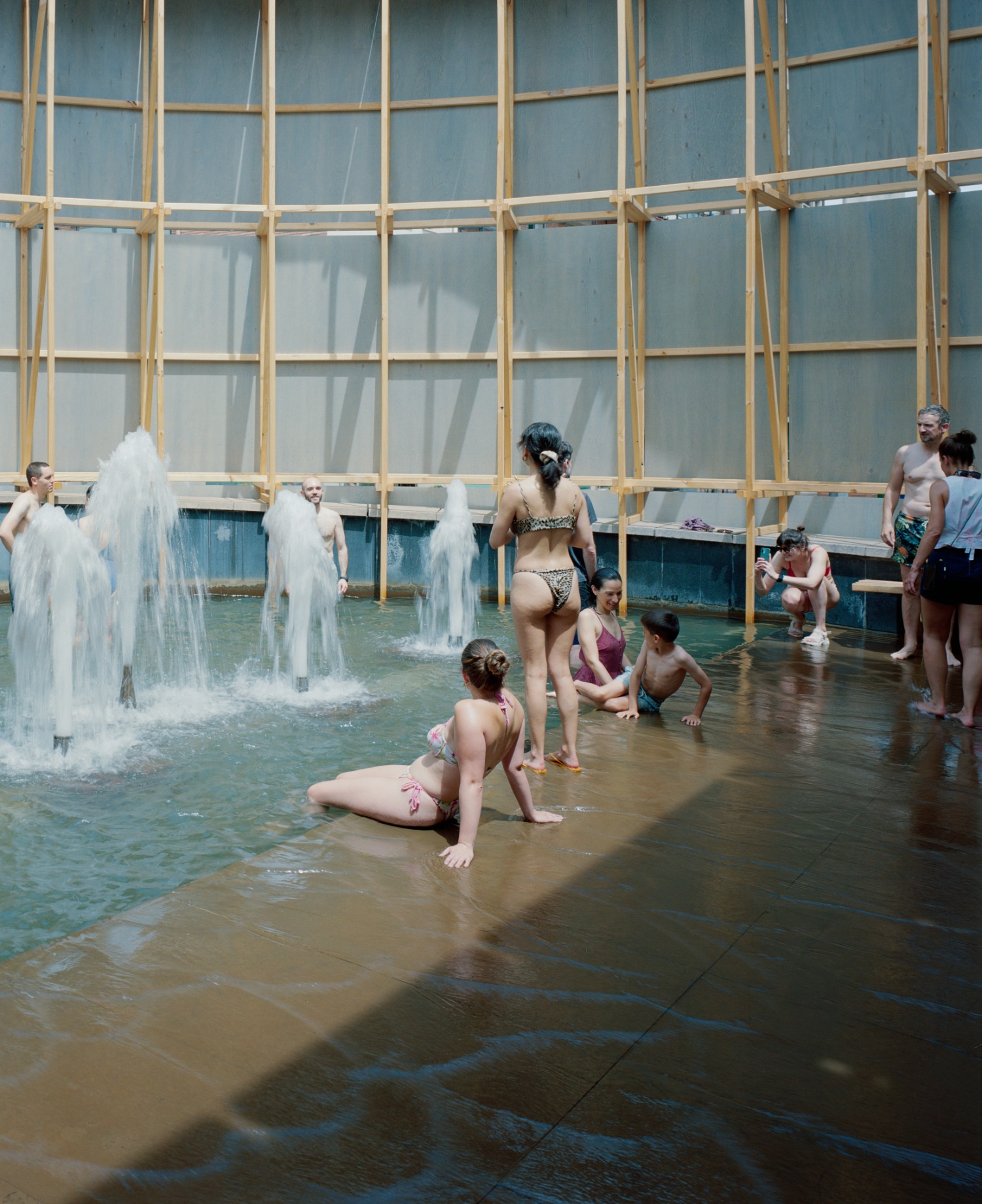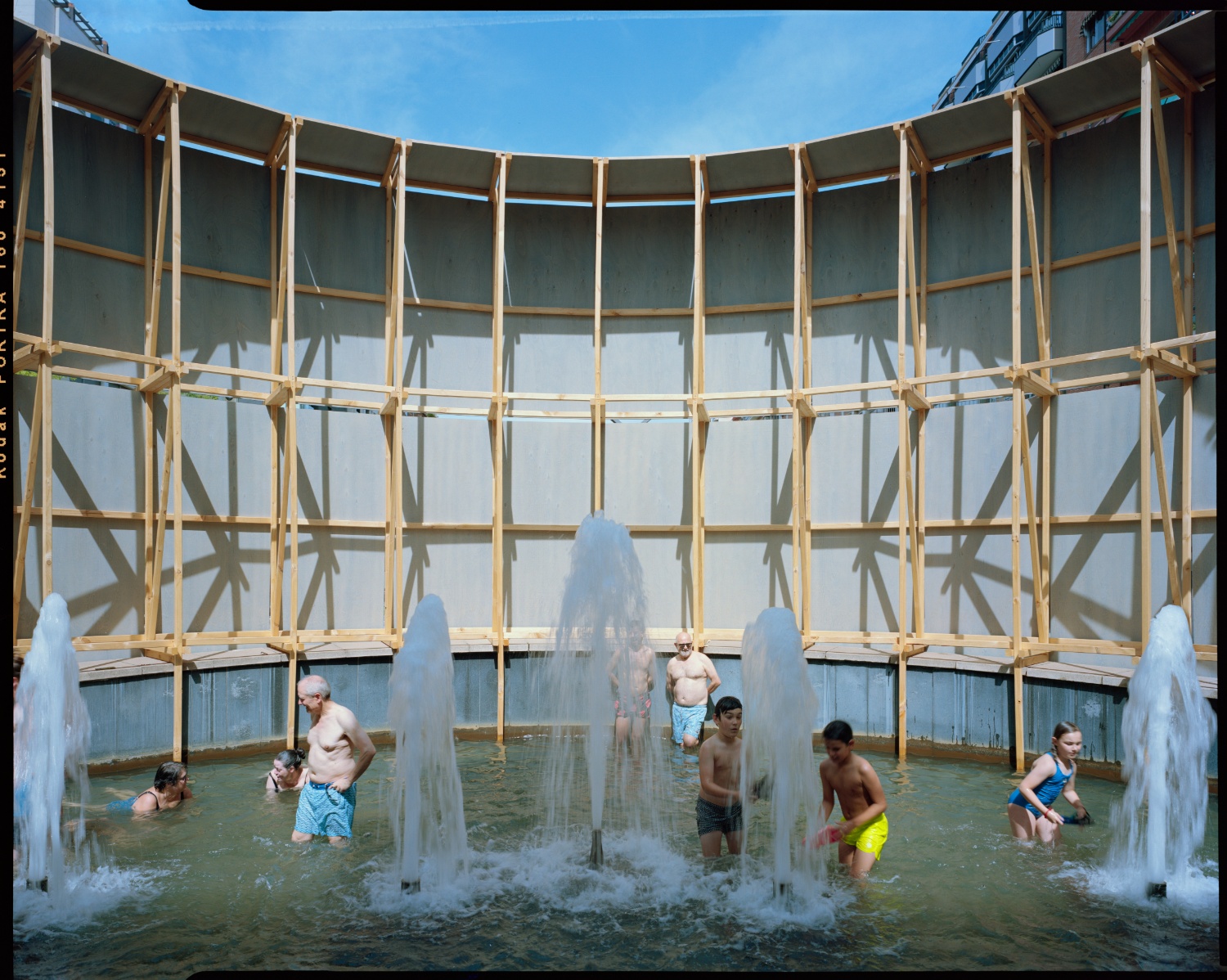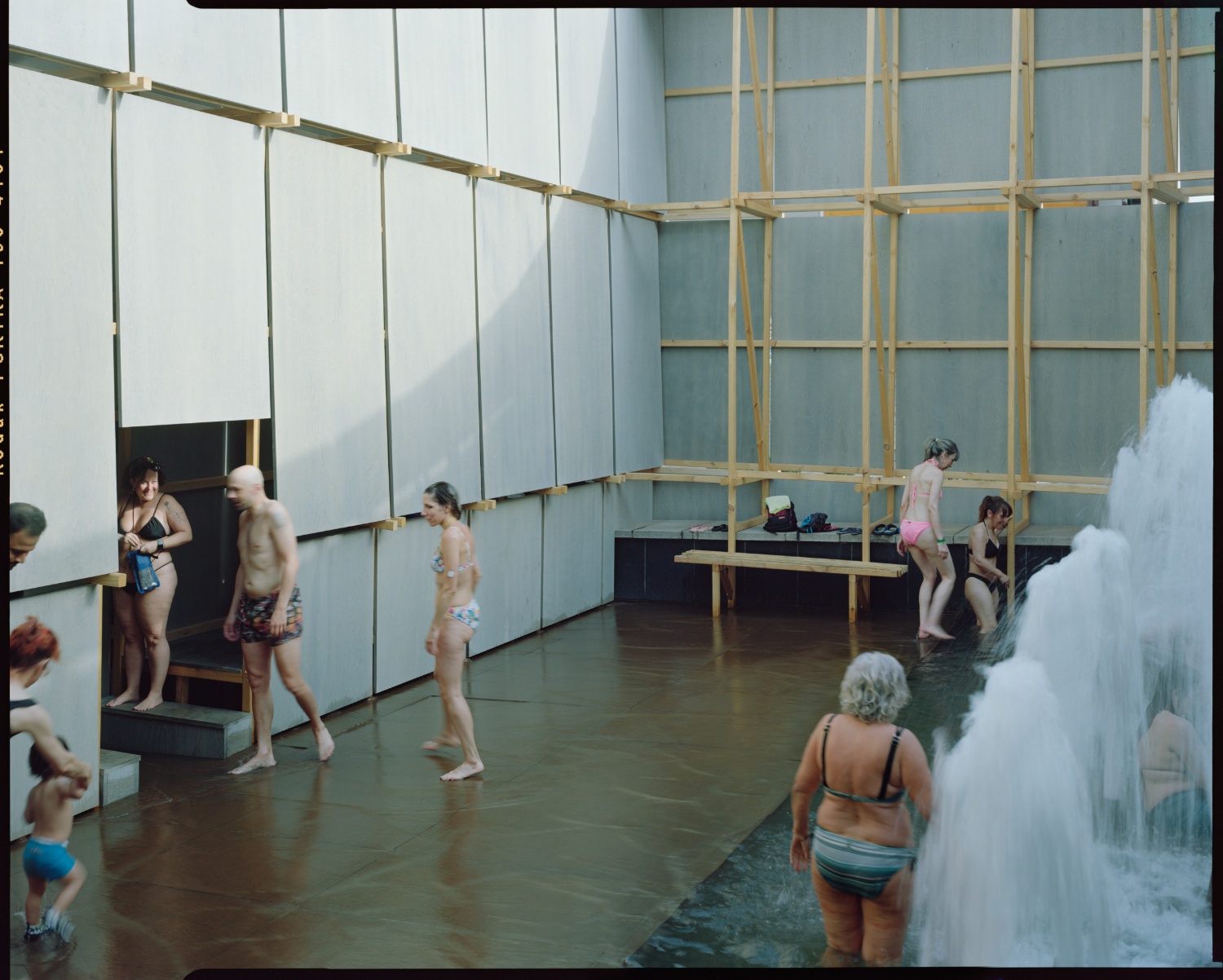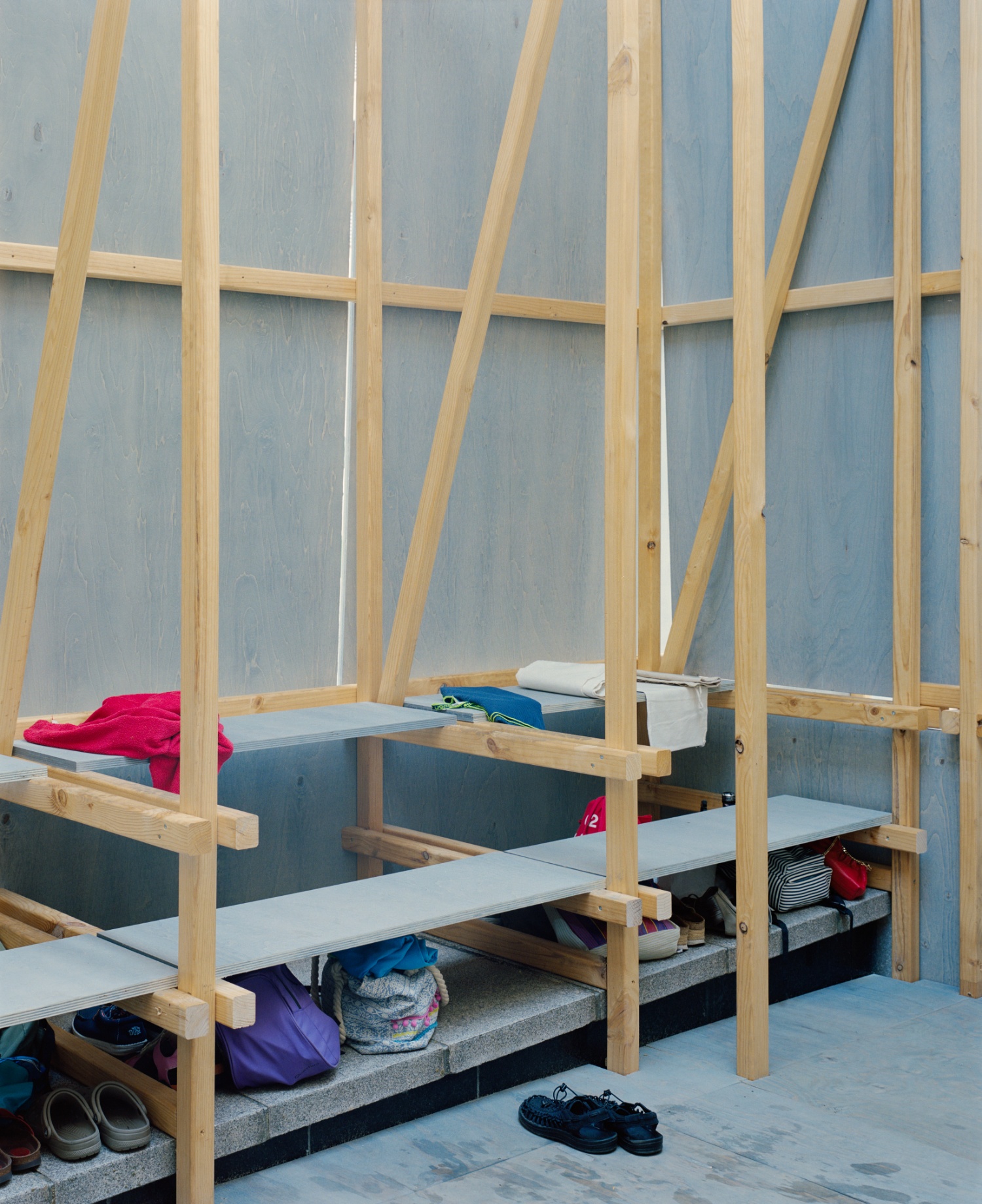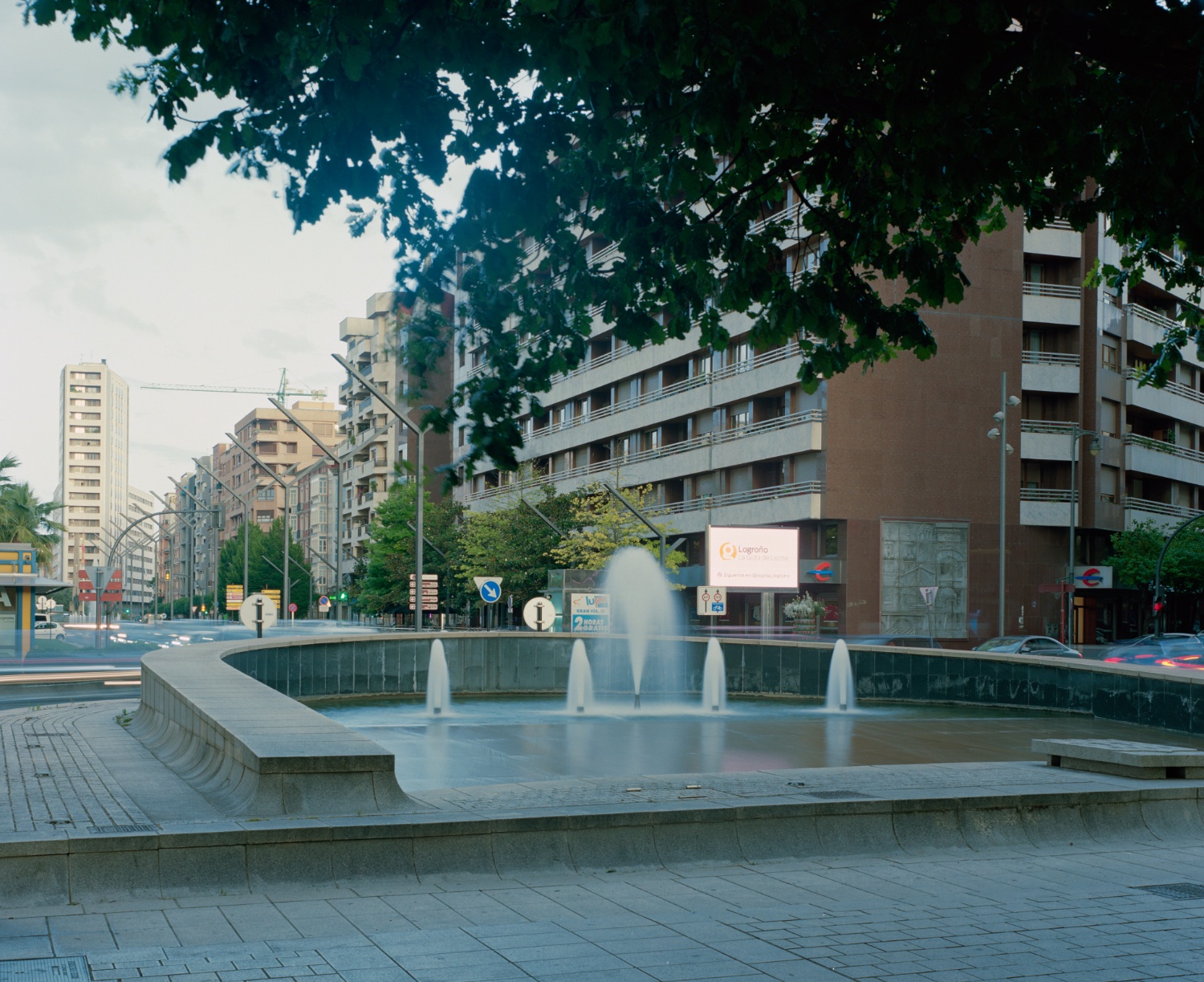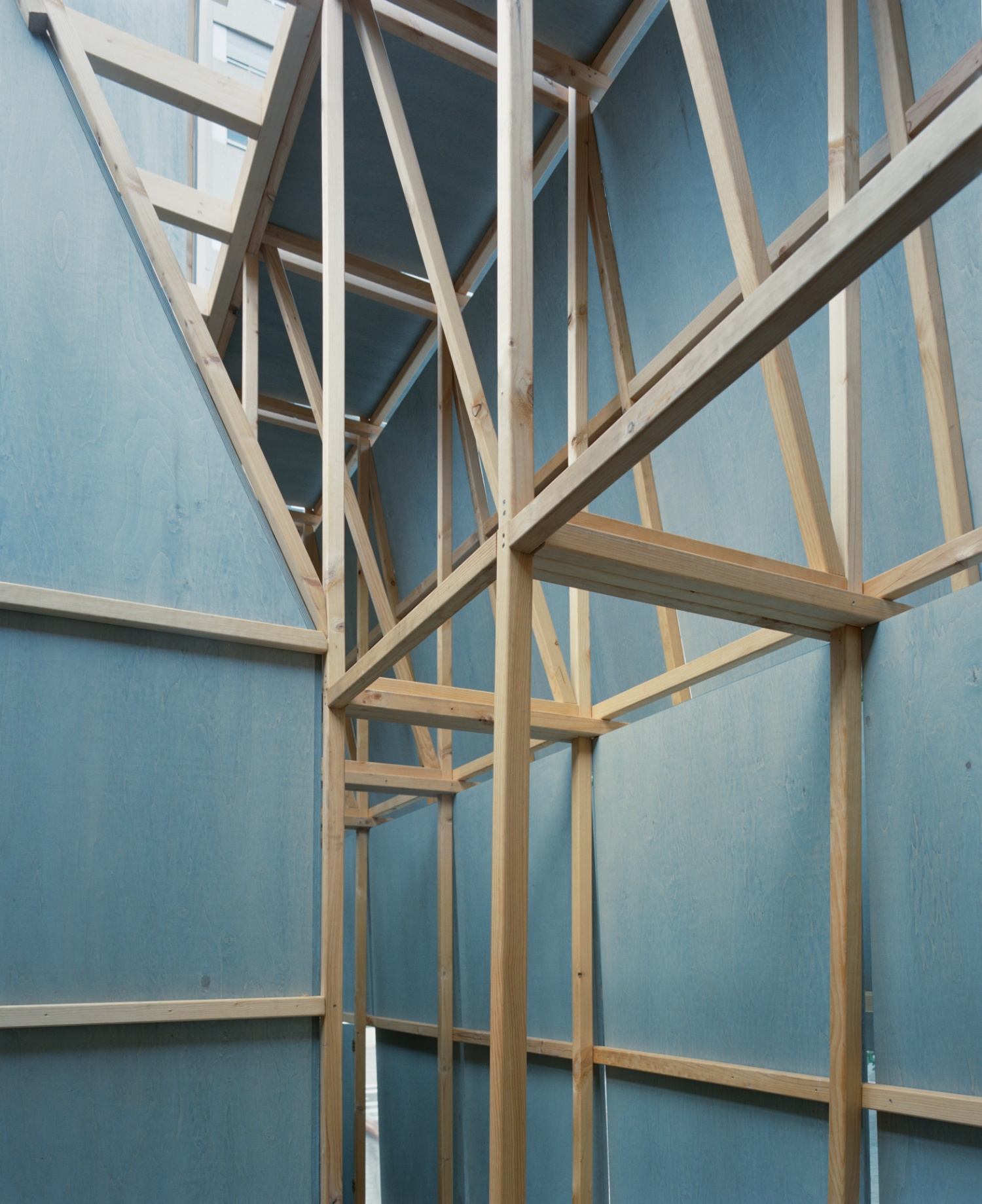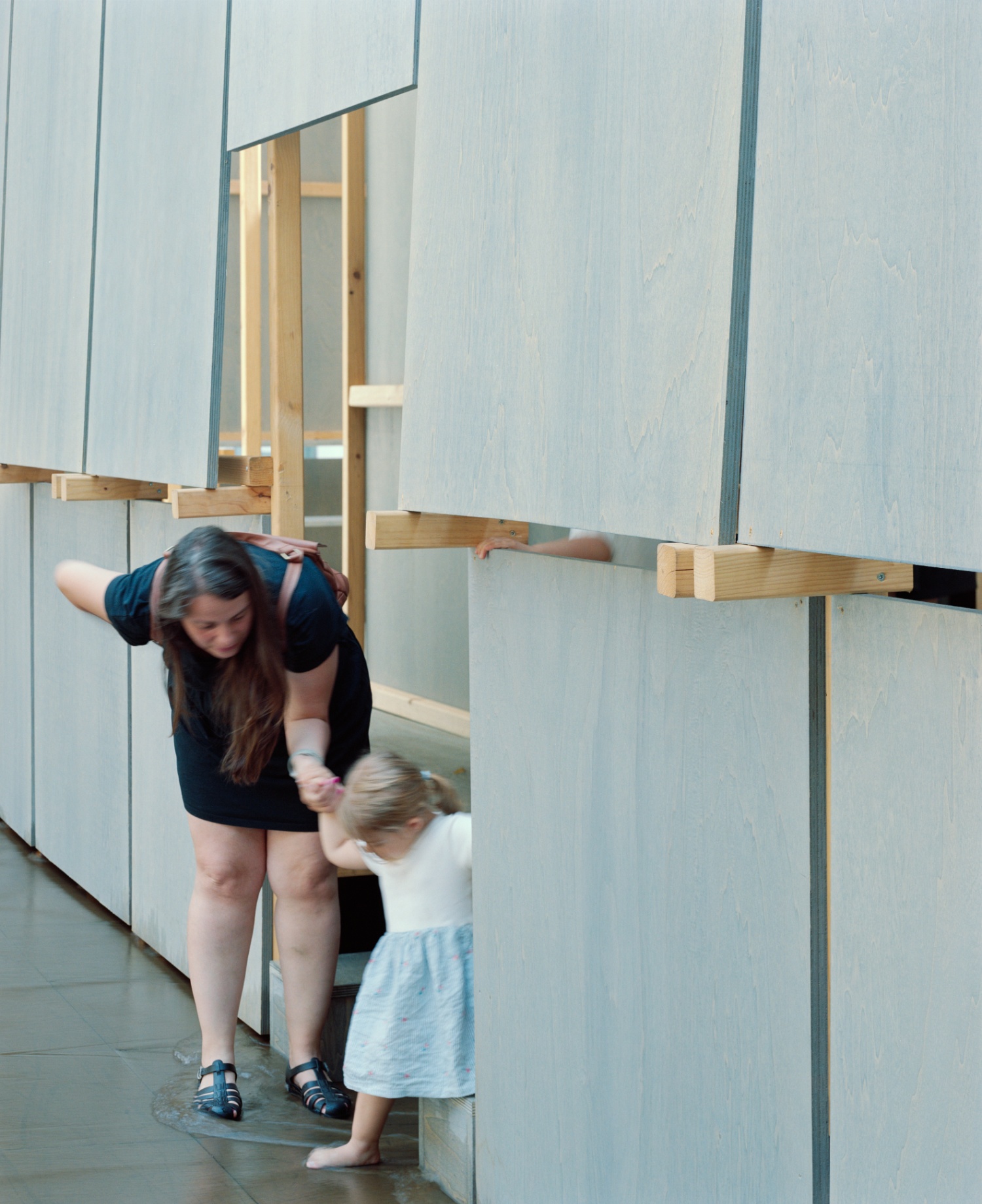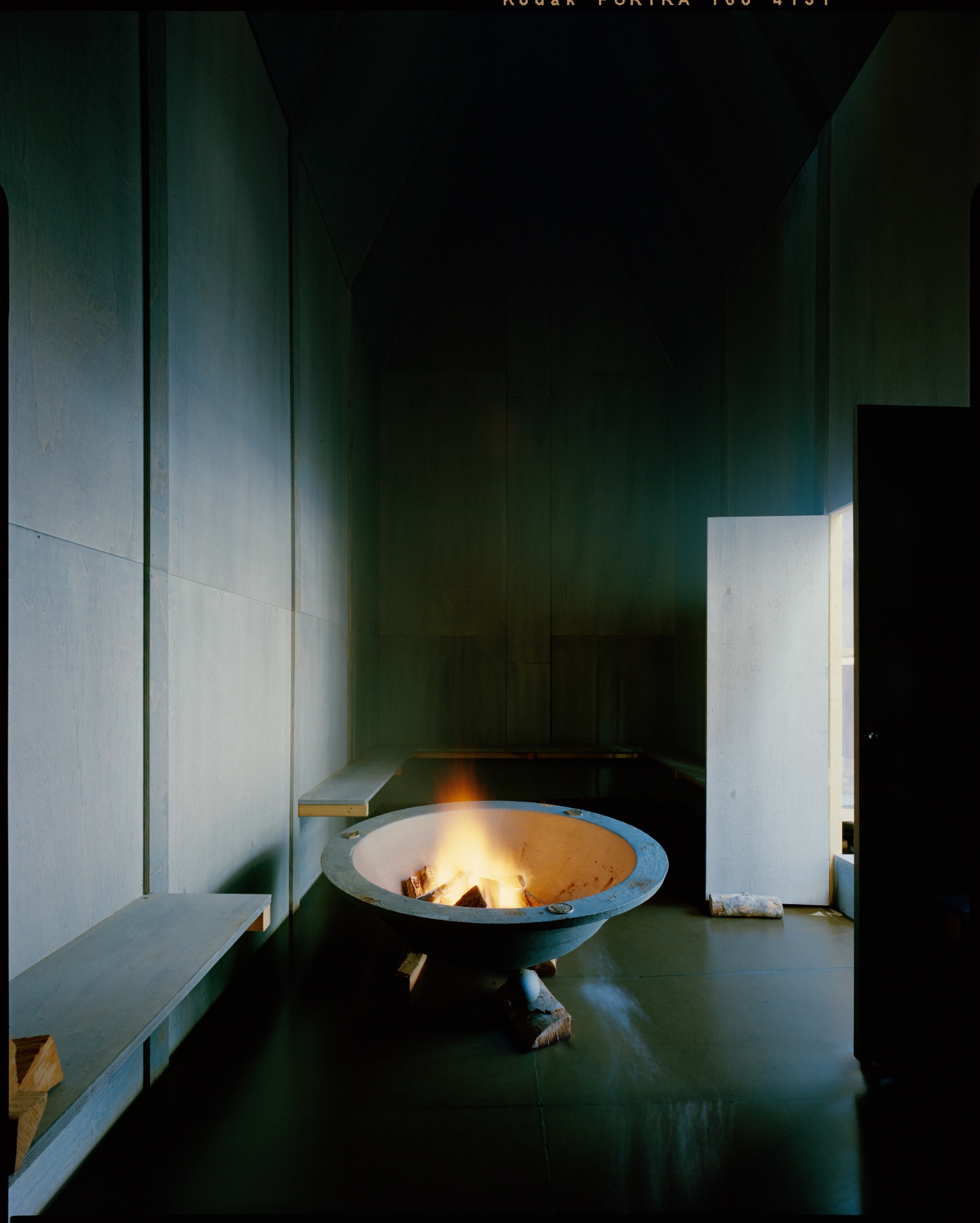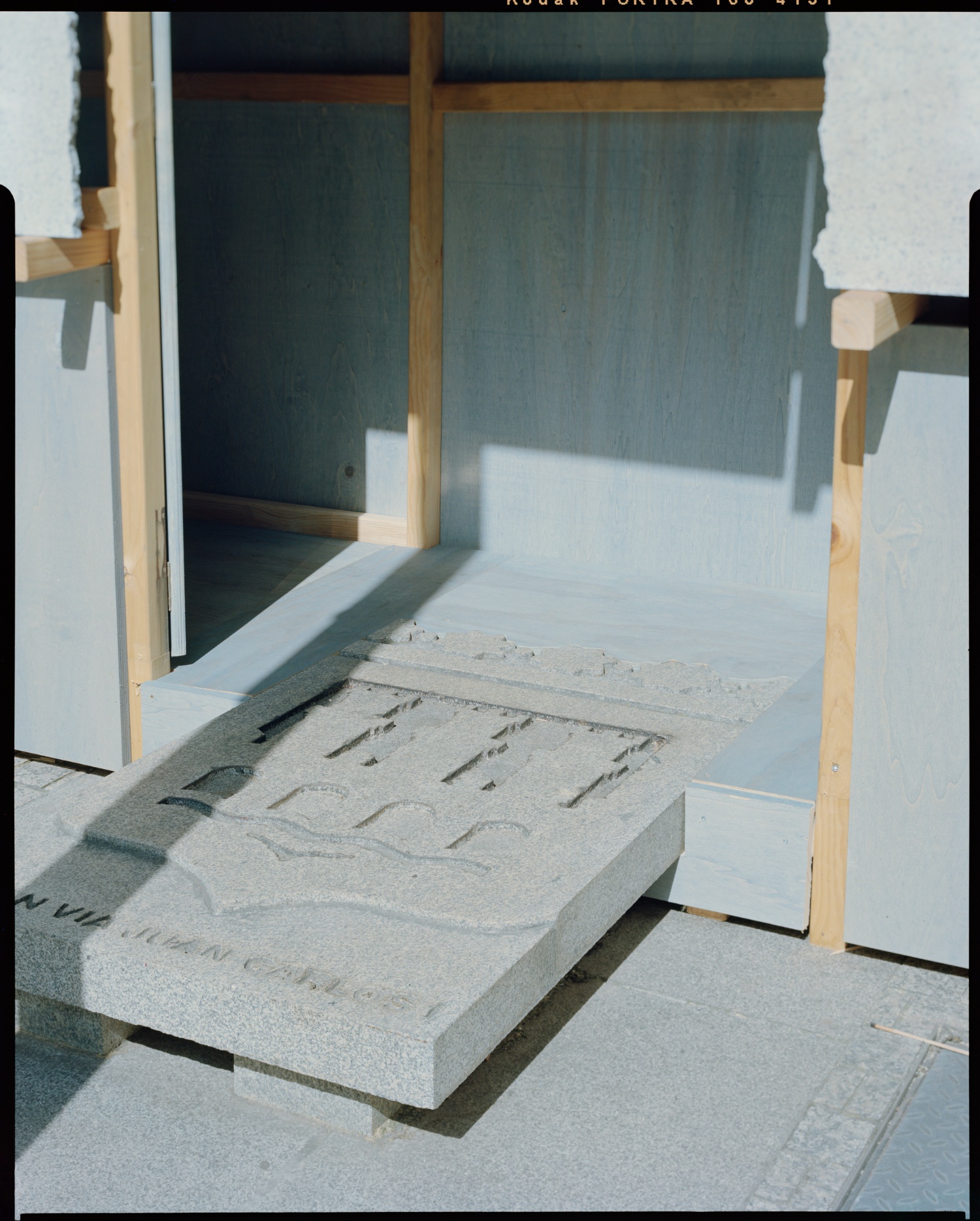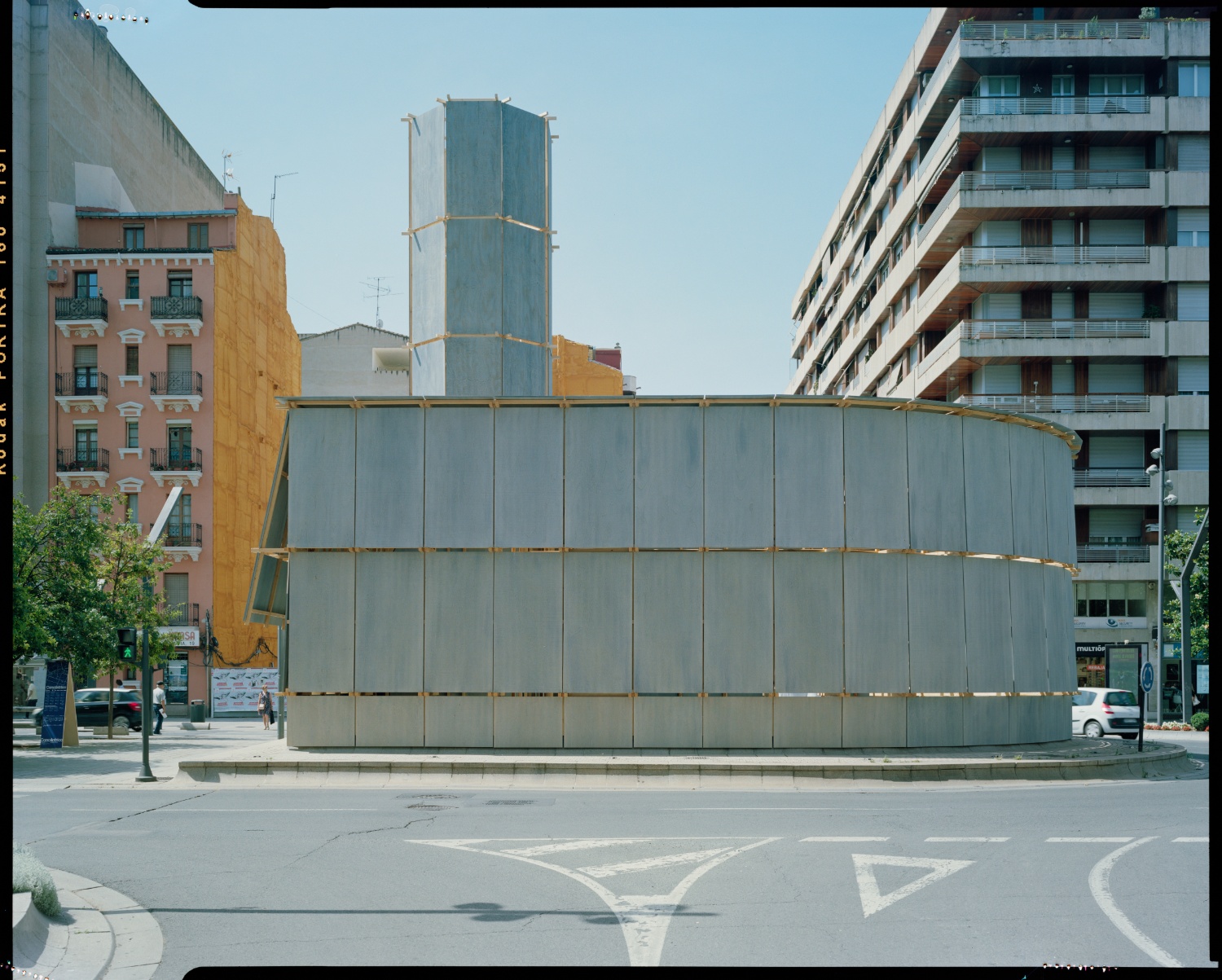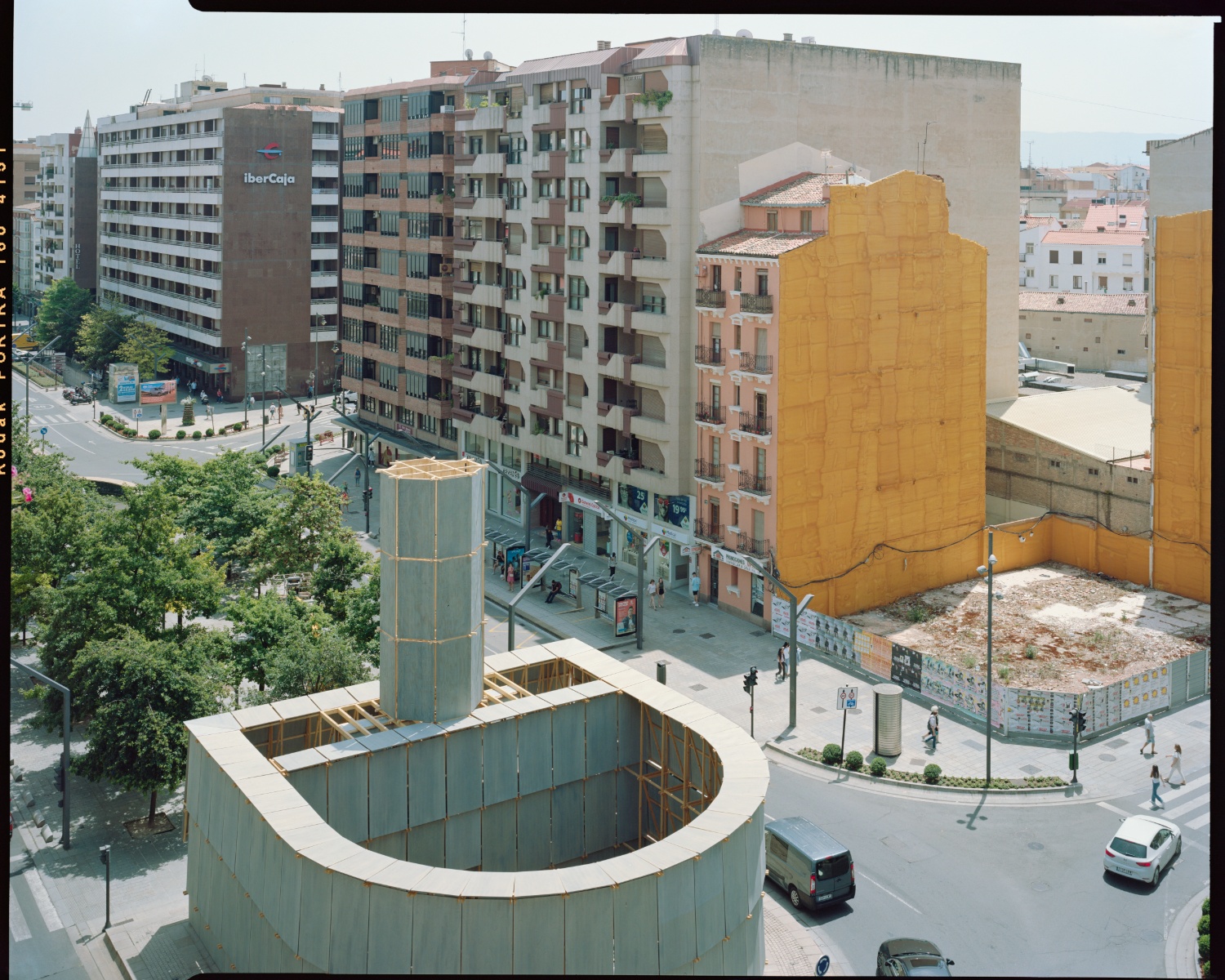In car-dominated cities, roundabouts are strange voids—isolated by traffic, untouched by people. Leopold Banchini’s Round About Baths reclaims one such space, transforming a fenced-off fountain into a site for rest, reflection, and bathing.
This temporary public installation turns an impersonal structure into a site of communal intimacy. At the heart of the roundabout — a place typically hostile to the body — people now gather, undressed and immersed in water. Combining steam rooms, cold basins, and changing spaces, the baths provide privacy and pause in one of the most public and peripheral places.
Historically, urban public baths were beacons of social reform — 19th-century projects to promote hygiene, dignity, and equality for the working class. But over time, these spaces have disappeared, replaced by private spas and commodified “wellness.” Round About Baths draws on this lost legacy, reviving the ideal of shared, non-commercial wellbeing in the heart of the city.
Built from a raw timber structure clad with unfinished wooden panels, the facility has a material language of impermanence and reuse. After the festival, the panels will be repurposed; the fountain will return to stillness. Yet something will have changed. The project leaves behind no monument — only the memory of warmth and water, and a vision of what public space might become when reclaimed for the collective body.
In the middle of motion, Round About Baths creates stillness. Where traffic once dictated the rhythm, the project offers ritual. It asks: what if the heart of the city wasn’t a void, but a vessel?

